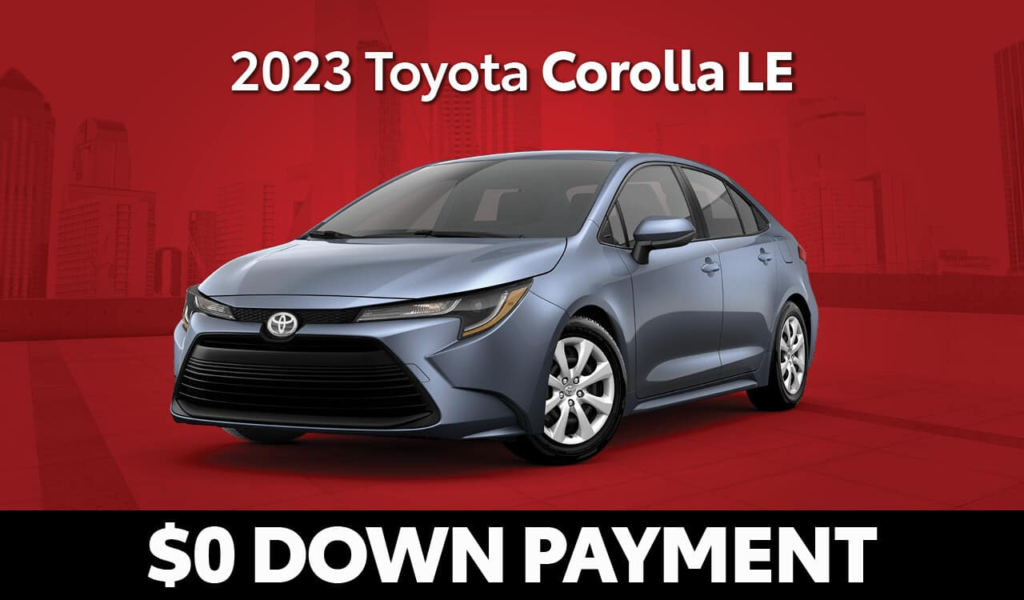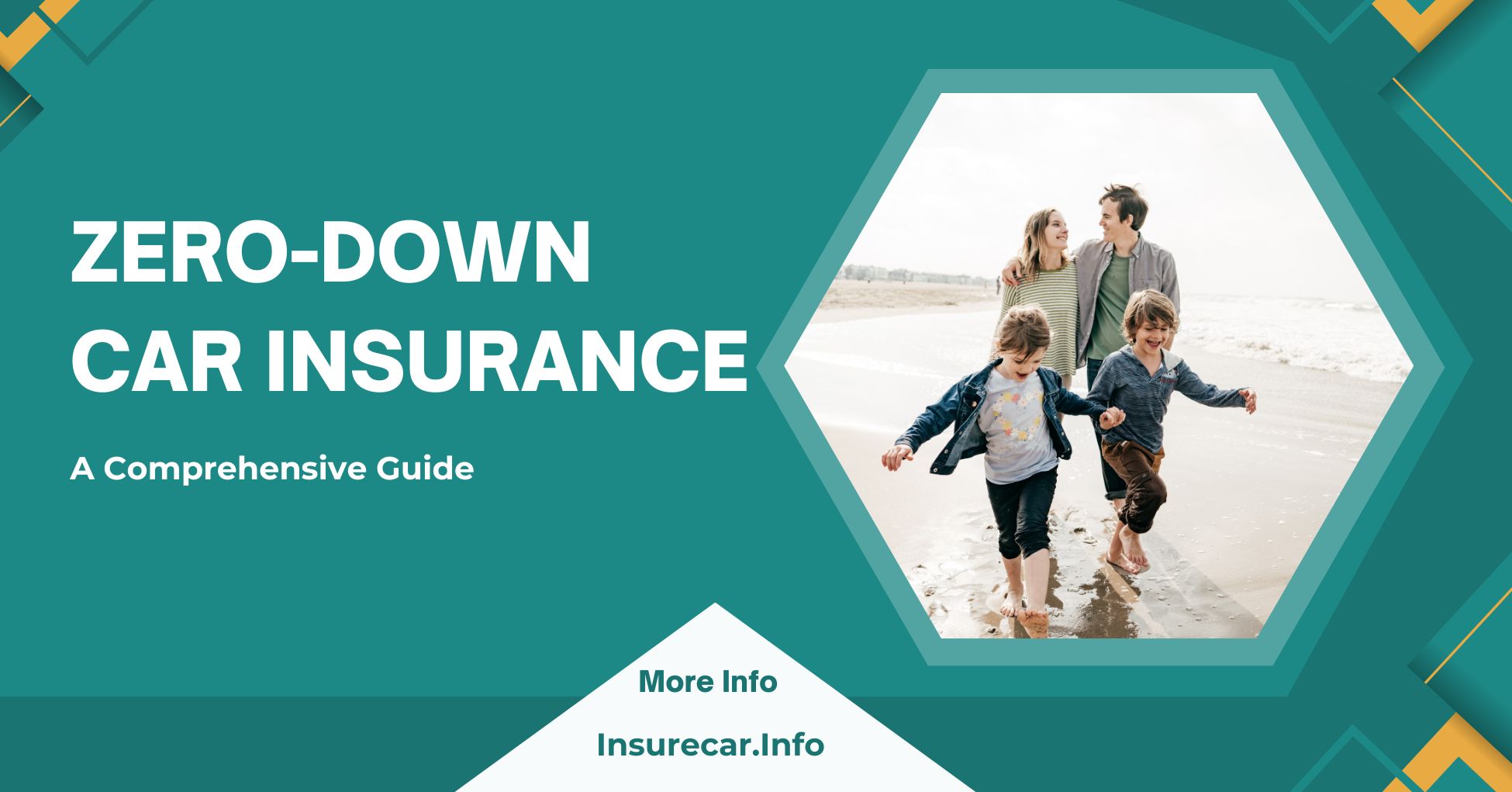Zero-Down Car Insurance: A Comprehensive Guide
In the realm of car insurance, hefty premiums and down payments often stand in the way of immediate coverage. However, for those seeking immediate protection without the burden of a substantial upfront expense, the concept of zero-down car insurance emerges as a savior.
Exploring Zero-Down Car Insurance

Zero-down car insurance, as the name implies, is an insurance policy that eliminates the need for an initial premium or deposit at the time of purchasing the policy. Instead of front-loading the payment with a down payment or full premium, this innovative approach allows you to distribute the insurance cost over the policy term through convenient monthly installments.
The Advantages of Zero-Down Car Insurance
Zero-down car insurance offers a range of benefits that cater to diverse needs:
Immediate Coverage Convenience
One of the most compelling advantages of zero-down car insurance is the ability to kick-start coverage without the pressure of a hefty upfront payment. This is especially advantageous for individuals facing budget constraints or those who prefer the flexibility of manageable monthly payments.
Enhanced Financial Flexibility
Embracing a zero-down auto insurance policy empowers you to streamline your cash flow effectively. By spreading the premium cost over the policy term, individuals can better manage their finances, accommodating other ongoing financial obligations without overstretching their resources.
Accessibility Amplified
Zero-down policies democratize auto insurance, making it accessible to a broader audience. Individuals who might otherwise struggle to afford a substantial upfront premium can now secure essential coverage, enabling them to hit the road without the burden of a significant one-time expense.
READ MORE:
Unveiling Zero-Down Car Insurance

Zero-down, or no-down-payment, car insurance presents an attractive proposition, allowing you to enter coverage territory with only the first month’s premium. However, it’s essential to recognize that zero-down insurance does not equate to a free ride. When insurers extend coverage, they undertake the risk associated with safeguarding both you and your vehicle. To counterbalance this risk, traditional policies often mandate a substantial upfront payment. Zero-down insurance preserves the essence of the premium, but distributes it over smaller monthly payments during the policy’s duration.
Navigating the Landscape
Consider this scenario: Your annual premium amounts to $1,200. Opting for the traditional route, you make a down payment of $200, resulting in monthly payments of approximately $83.33 (exclusive of taxes and fees). In contrast, embracing zero-down car insurance waives the upfront down payment, leading to consistent monthly payments of $100, supplemented by pertinent fees and charges from the insurance provider.

Evaluating the Pros and Cons
As with any financial decision, weighing the pros and cons is imperative:
The Upsides
- Immediate Access to Coverage: Zero-down policies usher in immediate coverage as soon as the inaugural monthly premium is paid. This is especially advantageous for urgent coverage needs, sparing individuals from an onerous down payment or upfront premium.
- Enhanced Financial Fluidity: Zero-down auto insurance empowers policyholders to manage their finances more efficiently. The systematic distribution of the premium cost over the policy term resonates particularly with those navigating tight budgets or multiple financial commitments.
- Expanded Accessibility: Zero-down policies break down financial barriers, enabling a wider demographic to partake in comprehensive auto insurance coverage.
The Downsides
- Escalated Aggregate Costs: While zero-down policies relieve the initial financial strain, the total premium remains due over the policy term. Some insurers might tack on administrative costs or other fees to compensate for the absence of an upfront payment. Consequently, the cumulative expense could surpass that of an upfront premium payment.
- Incurring Interest Charges: Certain insurers may levy interest on monthly installments, potentially amplifying the policy’s long-term cost.
- Restrictive Options: Not all insurance providers extend the option of zero-down premiums. Limited availability constrains the search for optimal deals and coverage.
- Cancellation Implications: Termination of an ongoing zero-down policy might trigger penalties or complications, potentially incurring significant costs.
Navigating the Landscape
Familiarizing yourself with the intricacies of your chosen car insurance policy is pivotal. Scrutinizing interest charges, cancellation penalties, and associated fees is a prudent step. We strongly advocate thorough research and comparison of auto insurance quotes from multiple providers, guaranteeing optimal coverage at the most favorable rates.
Premier Providers of Zero-Down Car Insurance
While the realm of zero-down car insurance is not universally offered, prominent insurers, including Geico, Progressive, State Farm, Nationwide, Farmers Insurance, The Hartford, USAA, Amica, Erie Insurance, and MetLife, extend this option to select policyholders. It’s noteworthy that eligibility hinges on factors like credit history and vehicle type. Approval rates are typically higher for those with favorable credit scores and more modestly-priced vehicles. Vigilance is required, as some companies might lack the financial stability to fulfill claims.
RELATED POST:
Maximizing Savings on Auto Insurance
In a landscape of escalating auto insurance costs, strategic approaches can lead to substantial savings. Amidst challenges posed by inflation, accidents, semiconductor shortages, and supply chain disruptions, exploring avenues for cost reduction is paramount.
The Path to Savings
- Embrace Comparative Shopping: Auto insurance prices exhibit significant variation among insurers. Thus, embarking on a comparison journey is prudent. Solicit quotes from at least three providers, as even marginal savings on the monthly premium translate into noteworthy overall cost reductions.
- Harness the Power of Bundling: Existing policyholders can leverage additional discounts by consolidating insurance policies. By combining home and auto insurance from the same provider, you unlock potential cost savings. Nevertheless, exploring options across providers remains essential to ensure you secure the most advantageous deal.
- Elevate Your Credit Score: A robust credit history wields considerable influence over insurance rates in select states. Bolstering your credit score diminishes insurance expenses, underscoring the pivotal role of responsible financial management.
- Unearth Discount Opportunities: Insurers extend tailored discounts to specific demographics. Life milestones such as home ownership, marriage, or academic excellence can render you eligible for auto insurance discounts. Additionally, completing a state-endorsed defensive driving course can further optimize your savings potential.
- Carpooling for Savings: Some insurers offer specialized plans for individuals who maintain a restricted monthly mileage. Opting for carpooling can not only curtail your annual mileage but also unlock associated discounts.
- Strategic Coverage Reduction: For owners of older vehicles with market values less than ten times the premium, contemplation of omitting comprehensive and collision coverage is viable. Periodic review of your insurance coverage allows for prudent decision-making in alignment with your current needs and budget.
- Elevate Your Deductible: Increasing your deductible amount translates to reduced premiums. The Insurance Information Institute asserts that elevating your deductible from $200 to $500 can yield coverage cost reductions of 15-30%. A higher leap, such as raising the deductible by $1,000, holds the potential to unlock savings of 40% or more. Prior to selecting a higher deductible, ensure your financial capacity to meet the deductible during a claim.
Crafting an Informed Choice
While zero-down car insurance radiates allure, a holistic evaluation of your options is indispensable. Monthly payments are influenced by a blend of factors encompassing insurer policies, credit score, vehicle model, driving history, and coverage type. Scrutinizing diverse possibilities, comparing quotes, and meticulously selecting a policy aligning with your coverage needs and financial reality ensures a judicious choice.
Sourcce: https://www.caranddriver.com/car-insurance/a36367150/0-down-car-insurance/
